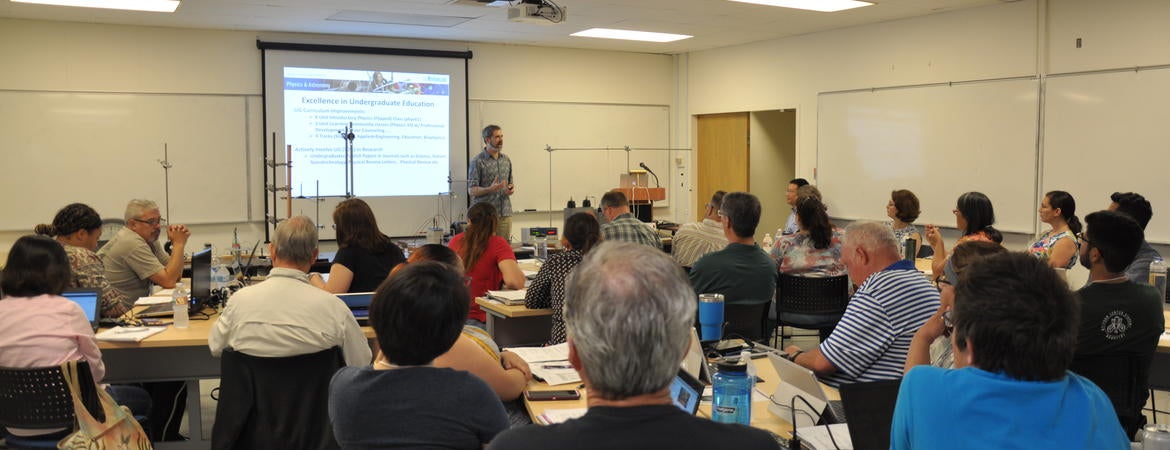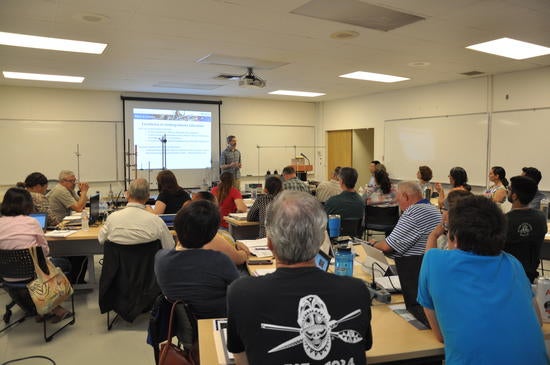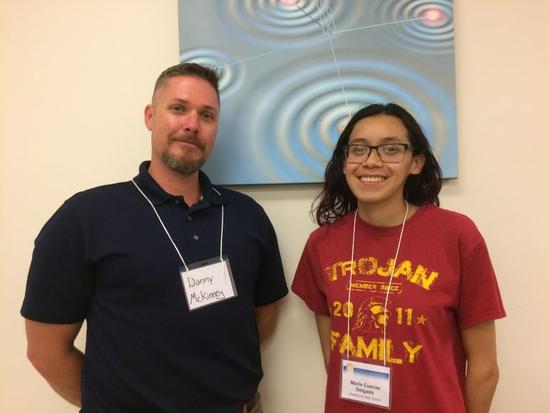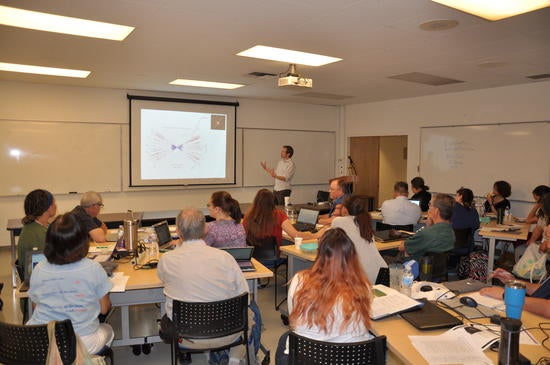
Kenneth Barish, the chair of the UC Riverside Department of Physics and Astronomy, formally began the Summer Physics Teacher Academy this year with opening remarks that included the following sobering statistics: Nationally, 33 percent of high school students take physics. In California, on average, 22 percent of high school students take physics. For the Inland Empire, this number is alarmingly low, at just 11 percent.
Partly to help improve the last statistic, the department annually hosts the academy, attended this year by nearly 30 teachers from local high schools. The 2018 academy began Monday, June 25, and will run through Friday, June 29. Faculty in the department will give lectures to the teachers on a variety of topics, including electromagnetism, complex quantum systems, nanotechnology, how to prepare for college science classes, surface physics, and classical mechanics. Hai-Bo Yu, an assistant professor of physics, and Maria Chiara Simani, the director of the California Science Project, led the organization of this year’s academy.
Daniel McKinney, who participated in the academy in 2016, guided this year’s participants in finding the thickness of a human hair using laser diffraction. He has 17 years’ experience teaching physics, and teaches currently at Santa Rosa Academy, Menifee.
“I came up with some ideas to improve the program by integrating more lab experience for the participants,” he said. “Working with UCR faculty, I developed classroom activities that go well with the research that takes place in UCR’s modern physics labs. The UCR Summer Physics Teacher Academy serves a large region in Southern California. By helping the teachers who attend this academy, I can help their students and improve the teaching of physics regionally. I’m always looking for ways to make the academy better, and look forward to feedback from this year’s participants.”
One of the teachers participating in the academy this year is Maria Cuevas Delgado, who finished her second year of teaching at Hawthorne High School. She was inspired to attend the academy because she has never taken a high school physics course.
“College physics, which I took for a year, is, in my mind, what physics is about,” she said. “When I saw the agenda for the academy, I thought, ‘Whoa! I don’t remember any of this.’ I signed up because I think I would benefit from lectures given by UCR professors. I hope to align what I learn from them with what I teach in my school. I am excited to come up with strategies for including in my classroom the content I learn at the academy. My goal is to get my students motivated to seek physics in the future.”
Börge Hemmerling, who joined UCR last year as an assistant professor, gave the participants a research lecture on the control and applications of complex quantum systems.
“I talked about how we can use microscopic systems like atoms or molecules – what we would call complex quantum systems – to investigate and study physics questions,” he said. “I discussed the variation of fundamental constants, noting that not everything we learn in high school is a given. At the university level much of what we learned in physics is questioned. I hope the teachers use their academy experience to get their students to become more open-minded and ask bigger questions.”
Two new components in the curriculum this year are: web-based demos, which are tools that can be useful, in particular, in schools that do not have enough equipment; and a series of other demos that can be easily implemented in the classroom.
The Summer Physics Teacher Academy is sponsored by the Department of Physics and Astronomy and the California Science Project. More information about the academy can be found here.


